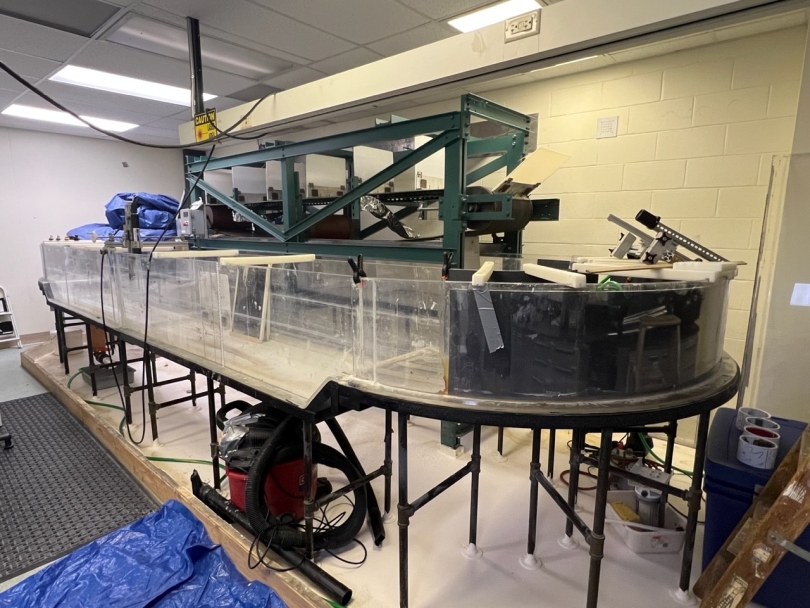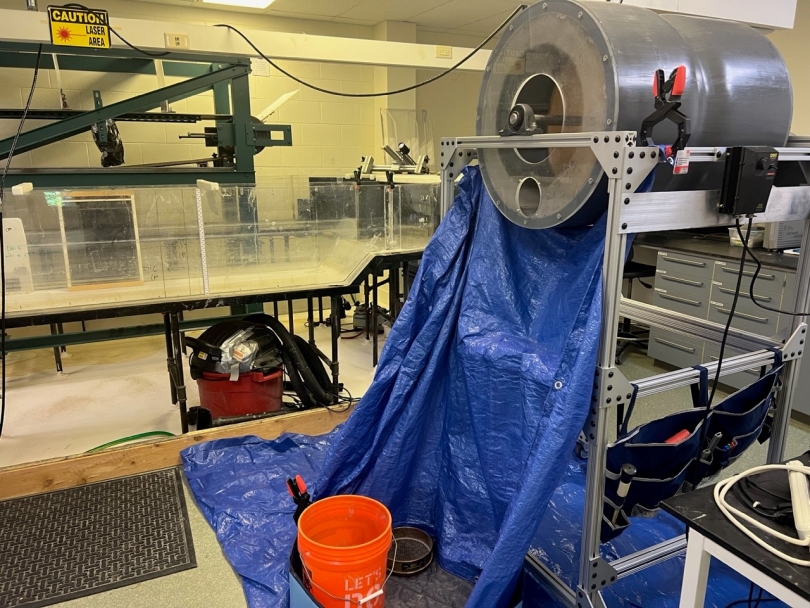Planetary Surface Dynamics Lab
The Dartmouth Planetary Surface Dynamics Lab hosts two flumes, which allow for the study of sediment transport processes under a variety of environmental conditions (e.g., channel slope, fluid flow rate, wave action, gravity/temperature). This allows us to study processes that are often difficult, dangerous, or impossible to observe in nature.
The racetrack flume has a 4-meter test section and is uniformly 0.5 m wide. Flow is driven by paddles attached to a shaft-driven belt, with mean fluid speeds that can reach ~1 m/s. It is a closed system, such that total water and sediment volumes remain constant.
racetrack_flume.jpg

The rotating drum is 60 cm in diameter, has a uniform width of 28 cm, and can handle grains up to 50 mm in diameter. The drum velocity varies between 0.3 and 0.5 m/s (12 – 16 RPM). The front of the drum is clear plexiglass, allowing for particles and fluid to be imaged and tracked.
dumb2.jpg

These unique flumes allow us to study how flow properties and sediment fluxes change with different sediment sizes, compositions, and fluids (including water-ice content), which is necessary for understanding river and mass flow transport, calibrating transport and landscape evolution models, and developing theoretical models for particle abrasion. These studies are relevant both here on Earth and other planetary systems.
This lab is partially supported by a NASA-ECA (#80NSSC22K1131) grant to MCP to establish a robust planetary sediment transport lab intended for use by the larger planetary community. If you have research ideas or experimental designs that would make use of this space, please email marisa.c.palucis@dartmouth.edu.